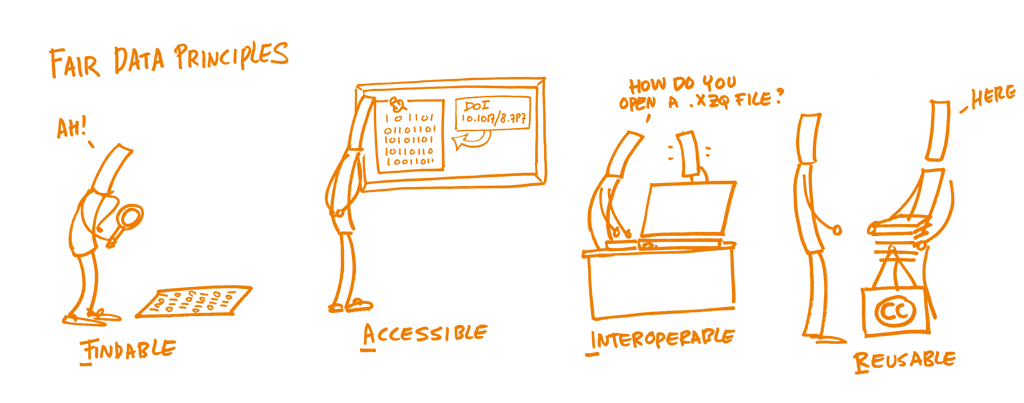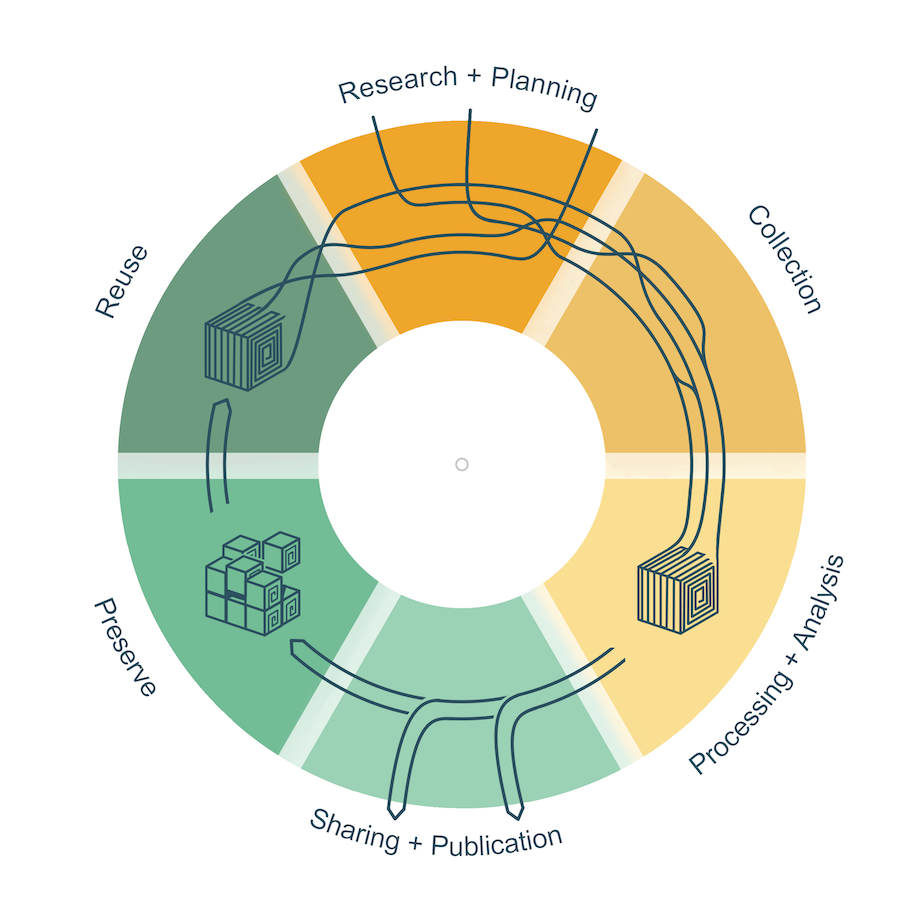FAIR and Open Data
A transparent research process is trustworthy and enables progress.
For this purpose, the data should not only be open but also fulfil certain quality criteria: According to the FAIR-principles data should be findable, accessible, interoperable and reusable to maximise its reuse potential.
Read more about the FAIR principles.
What does FAIR mean?

Findable
Data are assigned a persistent identifier (PID). The metadata are machine- and human-readable. You can increase the findability of data by sharing it via a FAIR-repository.
Read more on:
Persistent identifiers
Metadata / Data documentation
Sharing data on a FAIR repository
Accessible
(Meta)Data are accessible online, unless they are subject to data protection, copyright or other legal restrictions (e.g. special contracts). Access to the data is clearly described (e.g. embargoed, closed, restricted, open access). If the data itself cannot be shared, at least the metadata is available.
Read more on:
Metadata / Data documentation
Interoperable
To ensure that (meta)data are compatible with different computer systems, open formats are used. The metadata reflect the standards of the respective research discipline. Persistent identifiers can be used to link data with its publication, authors, code and other related information.
Read more on:
Metadata / Data documentation
Persistent identifiers
Reusable
The metadata clearly specify (e.g. with a license) under which conditions the data can be reused.
Read more on:
Creative Commons Licenses
How to Make Data FAIR?
Use the numerous online tools to improve or assess the FAIRness of (your) data.
UB tutorial: How to make your data FAIR?
Checklist: How FAIR are your data?
One simple step to make your data FAIR is by sharing it on a FAIR-compliant repository.
Requirements of the SNSF
The SNSF expects researchers to share their data according to the FAIR principles on publicly accessible, digital repositories. It is important to note that the FAIR principles do not require researchers to share all their data without any restrictions.
Requirements of the SNSF regarding research data
